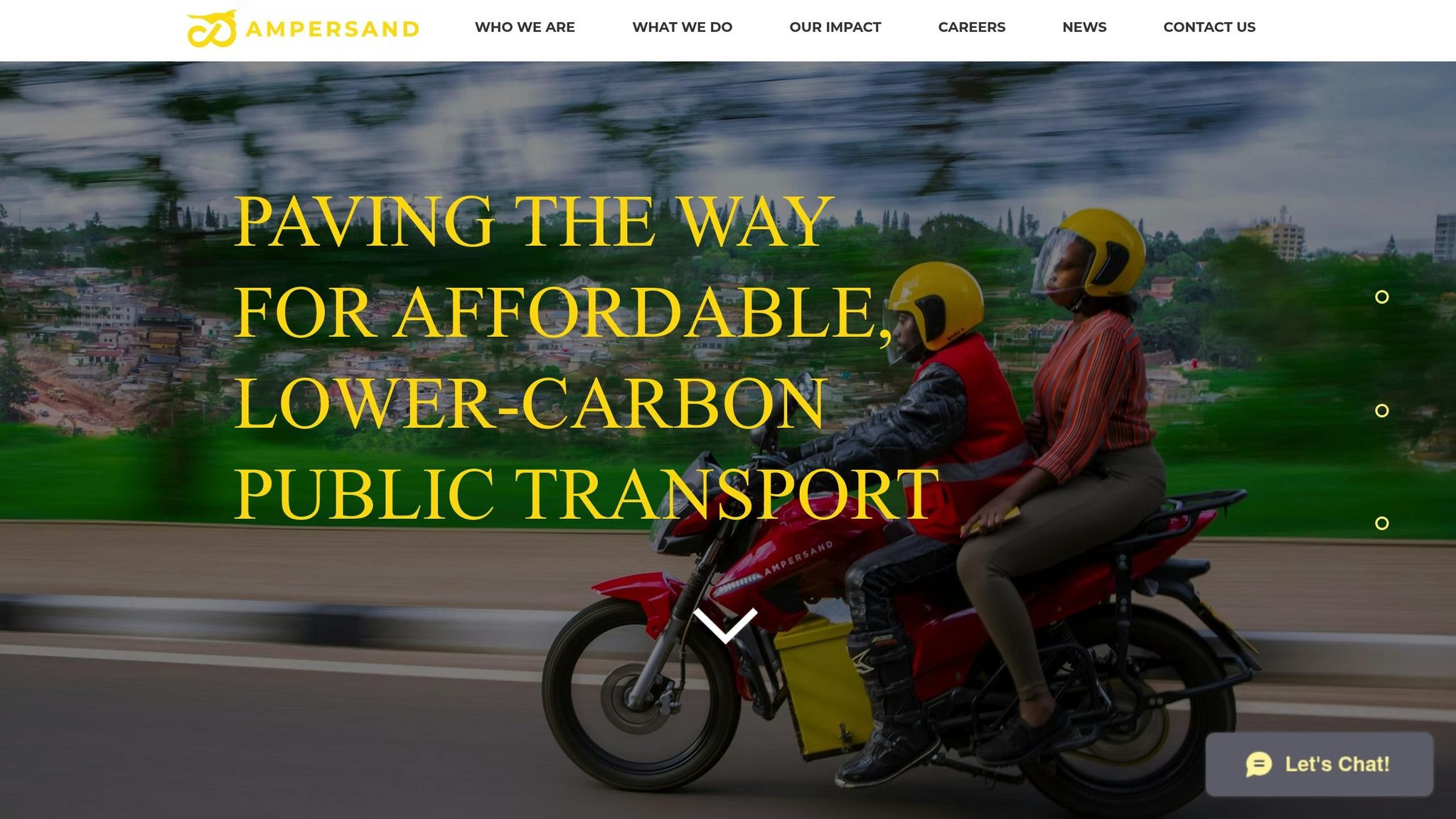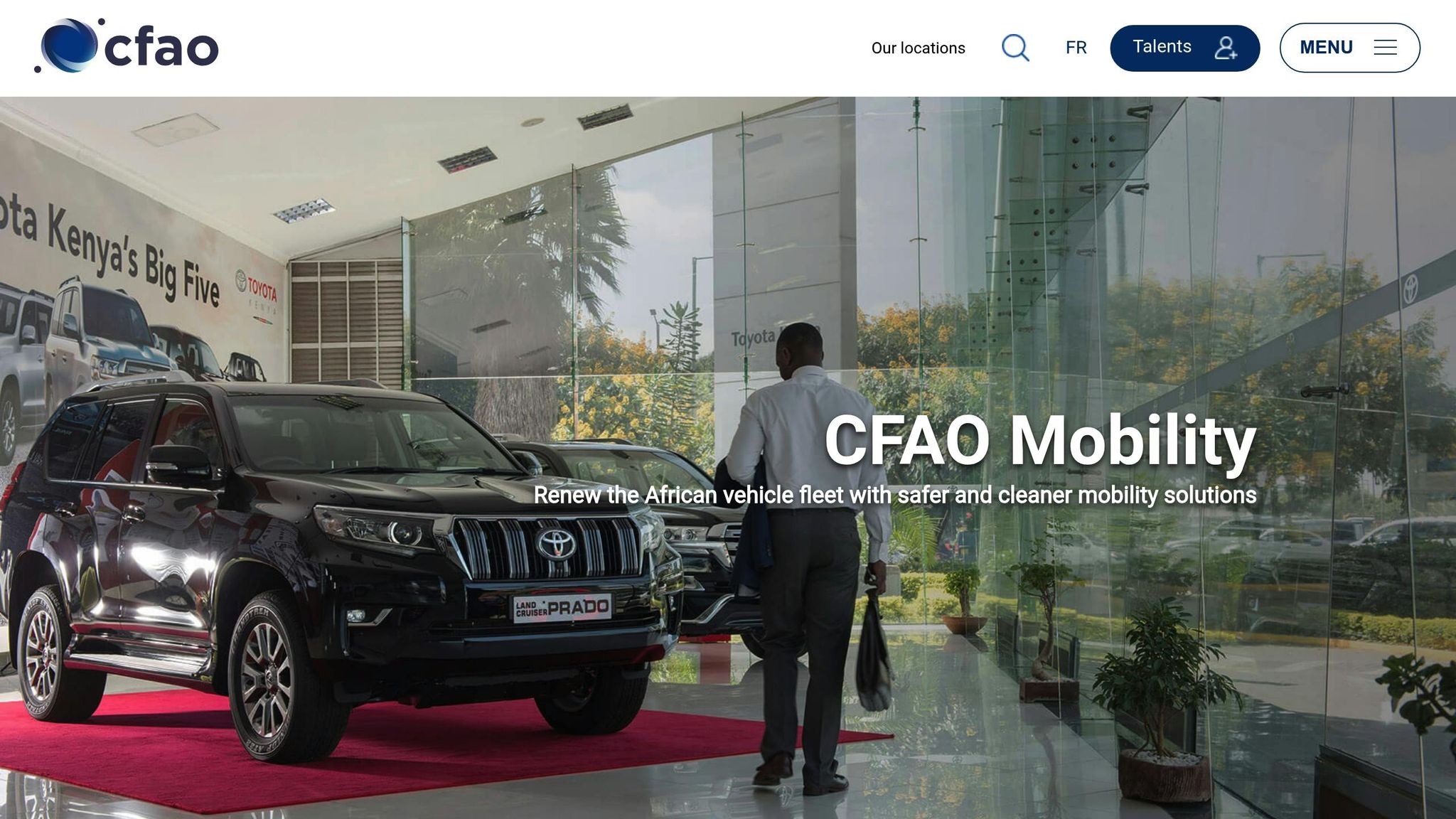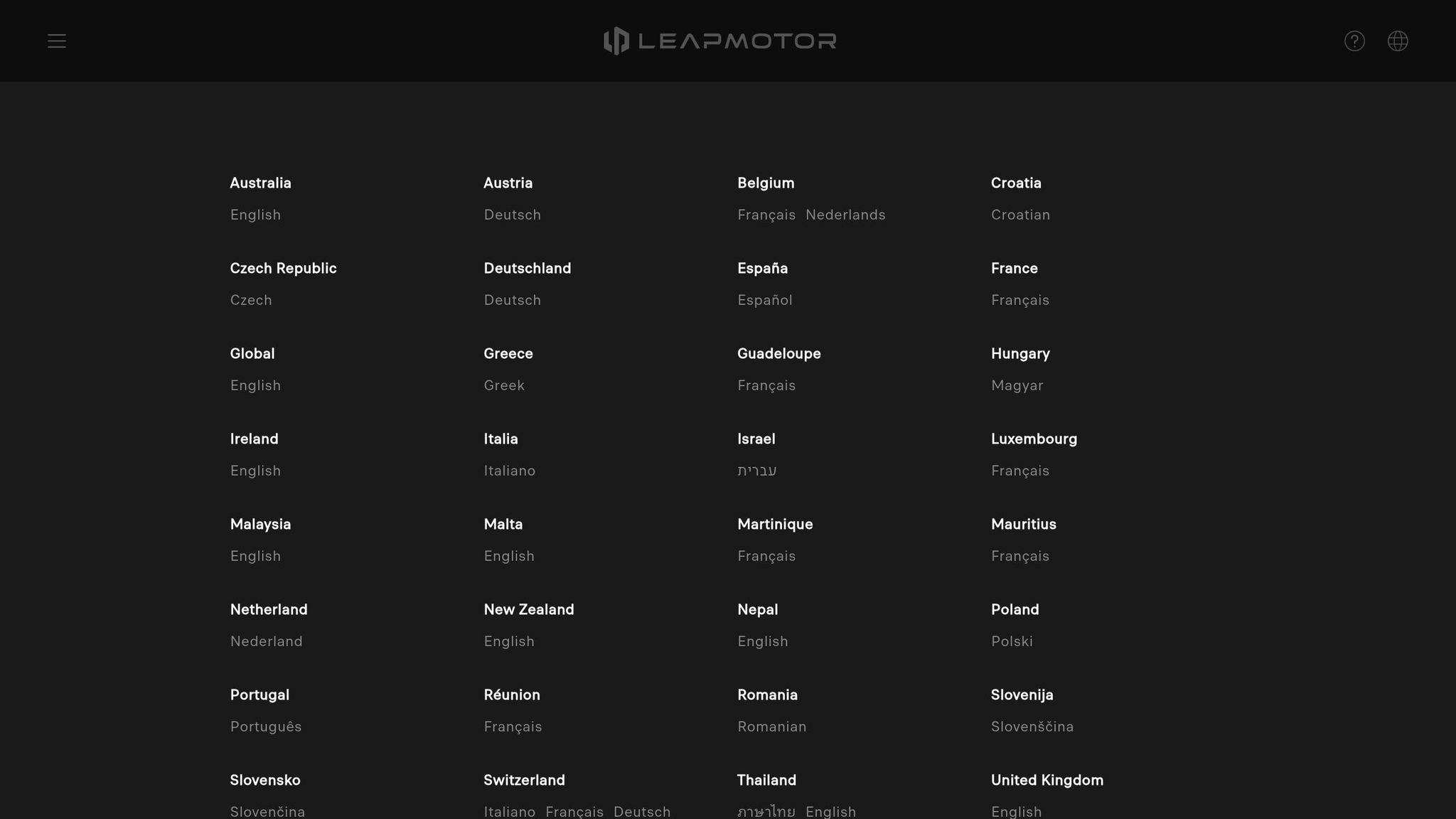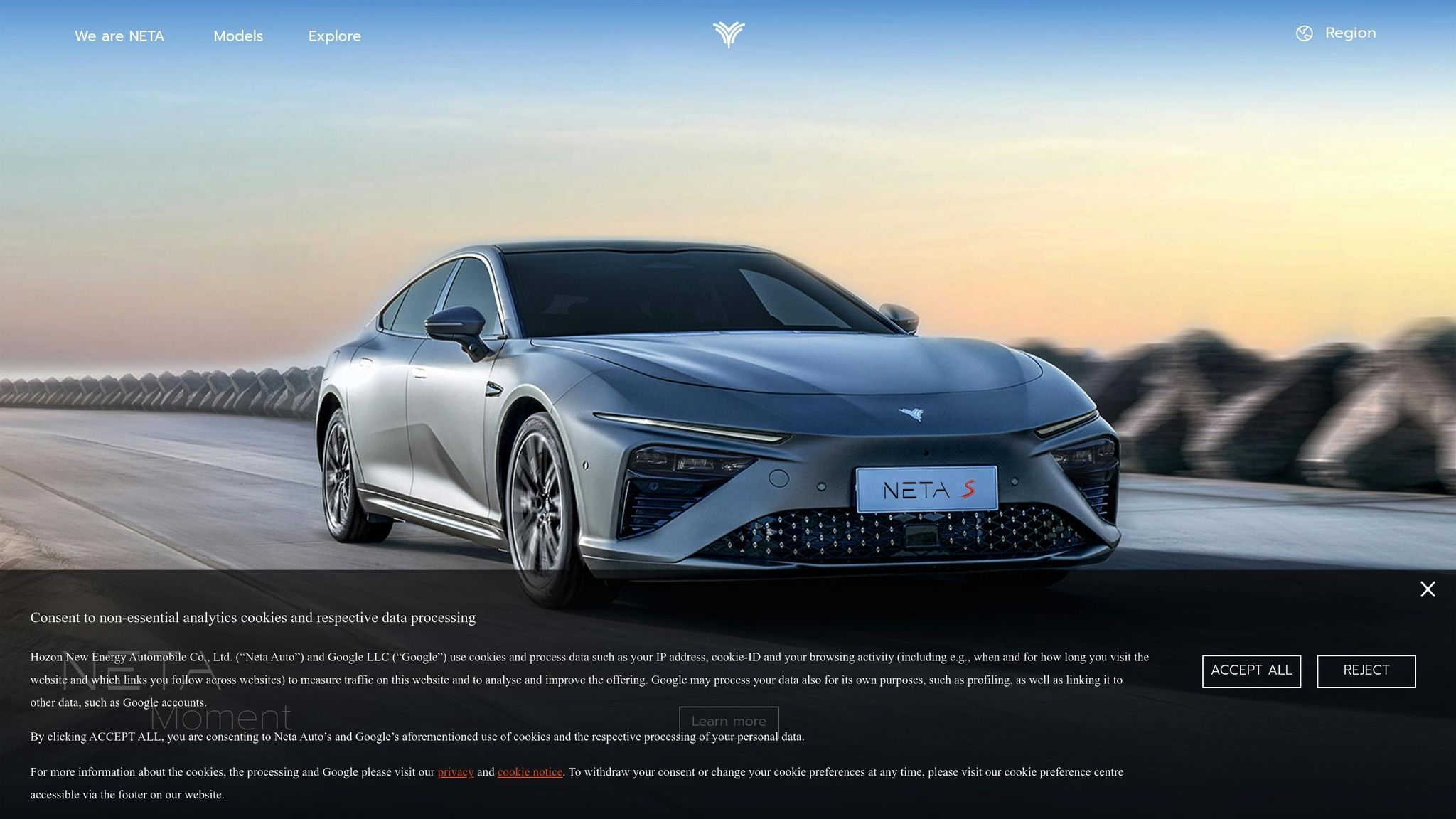Chinese electric vehicle (EV) manufacturers are establishing partnerships in Rwanda, drawn by the nation’s progressive EV policies and growing demand for clean transportation. With tax exemptions on EV imports and a 15% corporate tax rate for e-mobility companies, Rwanda is positioning itself as a key player in Africa’s EV market. Here’s what’s happening:
- BYD partnered with CFAO Mobility to open Rwanda’s first BYD dealership, offering models like the Atto 3 ($37,400). The collaboration includes charging infrastructure and maintenance services, addressing local air pollution challenges.
- Leapmotor, in partnership with Stellantis, delivers affordable EVs like the T03 ($9,500) while leveraging Stellantis’ distribution network. This aligns with Rwanda’s tax-free EV policies and growing vehicle registrations.
- NETA Auto is adopting a direct dealership model, ensuring consistent pricing and service. The company plans to open 100 stores across Africa, with Rwanda as a focal point.
Rwanda’s EV market is growing, supported by policies like the electric motorcycle registration mandate (effective January 2025) and expanding charging networks. However, infrastructure challenges, such as limited charging stations outside Kigali, remain a hurdle. These partnerships aim to address such gaps while driving local economic growth and reducing emissions.
Rwandan EV company, Ampersand partners with China’s BYD

1. BYD and CFAO Mobility Partnership

BYD, a major Chinese electric vehicle (EV) manufacturer, has joined forces with CFAO Mobility to establish East Africa’s first BYD dealership. This landmark facility, spanning 330 square meters (about 3,550 square feet), officially opened in Kigali, Rwanda, in January 2024, marking BYD’s entry into the East African market.
CFAO Mobility will provide comprehensive support for BYD vehicles, including charging infrastructure, solar power solutions, maintenance services, roadside assistance, and spare parts.
"We’re proud to be the first in Rwanda to distribute this type of electric vehicle and all its associated services. We conceived this dealership in Kigali as a place dedicated to the discovery of BYD vehicles, combining modernity, comfort and economy of use. It is very important for CFAO Mobility in Rwanda to participate in this way in the country’s energy transition and support our customers who wish to make the switch to electric."
– Srinivas Cheruvu, Managing Director, CFAO Mobility in Rwanda
The dealership’s flagship model, the BYD Atto 3, is priced at Rwf 49.9 million (approximately $37,400 USD). It comes with an eight-year warranty and comprehensive after-sales support, aligning with Rwanda’s 2030 electrification goals.
Environmental and Health Benefits
This partnership goes beyond business – it addresses pressing environmental concerns in Rwanda. With over 300,000 registered vehicles contributing to significant air pollution, vehicle emissions are the country’s largest source of air pollutants. A 2022 study found that 80% of tested vehicles in Rwanda exceeded greenhouse gas emission limits, and in 2012, over 2,200 deaths were linked to ambient air pollution.
BYD and CFAO Mobility’s collaboration supports Rwanda’s target of reducing greenhouse gas emissions by 38% by 2025.
"Rwanda is one of the most advanced countries in the continent in its willingness to reach carbon neutrality, to boost the sales of clean vehicles and to use clean electricity. This policy perfectly matches both the strategy of BYD and CFAO Group."
– Pierre Toulotte, BYD Brand Manager
Expanding Product Portfolio
While the Atto 3 is the flagship model, CFAO Mobility plans to introduce additional BYD vehicles, such as the Dolphin and Dolphin Mini, offering more affordable options for electric mobility. Globally, BYD’s momentum is evident, with projected net profit growth of 74.5–86.5%, driven by increased EV sales and international expansion. These efforts pave the way for further advancements in Rwanda’s emerging EV market.
2. Leapmotor and Local Rwandan Distributor Collaboration

Leapmotor is making its way into Rwanda’s electric vehicle (EV) market through a partnership with Stellantis. This collaboration gives Leapmotor access to Stellantis’s well-established dealer networks and parts distribution systems across Africa, offering a solid base of local expertise. These resources pave the way for competitive pricing strategies in Rwanda.
This partnership is a significant step for Leapmotor, building on Stellantis’s $1.6 billion investment in 2023, which included acquiring a 21% stake in Leapmotor. The joint venture, Leapmotor International, was formed as part of this investment, with Stellantis holding a controlling 51% interest.
Rwanda’s EV-Friendly Pricing Strategy
Rwanda’s progressive tax policies make it an appealing market for EVs. The government has eliminated import duties on electric vehicles, EV batteries, and charging infrastructure, creating an opportunity for affordable pricing. For instance, the 2024 Leapmotor T03 is available for just $9,500, making it one of the most budget-friendly EVs in the region. Looking ahead, Rwanda’s fiscal reforms for 2025/26 will introduce an 18% VAT and a 5–15% excise duty on hybrid vehicles, while fully electric vehicles will remain completely exempt from taxes and duties.
Market Impact and Consumer Benefits
Leapmotor’s entry into Rwanda is already boosting the local EV market, with registrations climbing from 500 to approximately 1,200 units. The company’s focus on affordable and forward-thinking electric mobility aligns with Rwanda’s goals for sustainable transportation. Leapmotor’s advancements in powertrain technology and its Cell-To-Chassis (CTC) design not only improve quality control but also lower production costs. These innovations are helping to solidify the company’s position as it works toward broader growth across Africa.
"We, Leapmotor, believe that the future of sustainable mobility should be accessible to everyone." (Leapmotor)
Broader African Strategy
Leapmotor’s efforts in Rwanda are part of a larger plan to expand across Africa. The company is set to launch the C10 model in South Africa by September 2025, with additional models planned for 2026. This regional approach allows Leapmotor to achieve cost efficiencies while tailoring its offerings to local needs. Meanwhile, this partnership with Stellantis aligns with Stellantis’s broader goal of becoming a market leader in the Middle East and Africa. Stellantis aims to sell one million vehicles in the region by 2030, with 35% of those being electric. In 2024 alone, Stellantis sold 500,000 vehicles in the area, providing a strong platform for future growth.
Environmental Alignment
Rwanda’s commitment to clean energy adds to its appeal as a hub for electric mobility. With over 60% of the nation’s electricity coming from hydropower, the country provides an ideal setting for sustainable transportation. This clean energy infrastructure supports efforts to improve air quality and advance green initiatives.
sbb-itb-7bc66b5
3. NETA Auto‘s Direct Dealership Model in Rwanda

NETA Auto is stepping into Rwanda’s electric vehicle (EV) market with a unique approach: company-owned dealerships. This model allows the company to oversee every aspect of the customer experience, from the initial sale to after-sales service and warranty support. It aligns perfectly with Rwanda’s ongoing efforts to promote cleaner, more sustainable transportation solutions.
Ambitious Growth Across Africa
NETA Auto has set its sights on opening 100 stores across 20 African countries, aiming to sell over 20,000 vehicles annually within three years. This bold plan highlights the company’s determination to establish a strong physical presence across the continent, with Rwanda playing a pivotal role. By operating its own dealerships, NETA can ensure consistent pricing, high-quality service, and unified brand communication, avoiding the extra costs often associated with third-party distributors. This strategy positions Rwanda as a cornerstone for NETA Auto’s broader African expansion.
Smart Market Entry Strategy
To make a swift impact, NETA Auto is leveraging its own dealership network, competitive pricing, and strong after-sales support. The company is also tapping into digital platforms and offering customized financing options to make EV ownership more accessible. These efforts are well-aligned with Rwanda’s EV-friendly policies, such as the 0% import duty on electric vehicles, creating an environment where EVs can become an affordable option for many.
Transforming Local Business Dynamics
NETA Auto’s direct dealership model is reshaping how EVs are sold in Rwanda. While this approach may limit opportunities for independent local dealers, it creates new jobs within NETA’s own operations. Positions in retail, maintenance, and customer support are opening up, emphasizing the company’s role in fostering local employment and boosting the economy.
Benefits for Rwandan Consumers
For Rwandan consumers, NETA’s model offers clear advantages. Buyers gain direct access to manufacturer-backed warranties, standardized services, and immediate technical support. Additionally, the company is working on tailored financing plans and maintenance packages to lower the financial barriers to owning an EV, making the transition to electric vehicles more feasible for a wider audience.
Building EV Infrastructure
NETA Auto understands that selling EVs is only part of the equation. To support Rwanda’s EV ambitions, the company is investing in vital infrastructure. This includes creating reliable supply chains for parts and services, training local staff, and collaborating with authorities on import and environmental standards. With Africa’s EV market still in its early stages – featuring just around 20,000 electric vehicles and fewer than 1,000 charging stations – NETA’s efforts aim to establish a comprehensive service network alongside its retail presence, addressing the key challenges of this emerging market.
Pros and Cons
When Chinese EV brands consider entering Rwanda’s market, each partnership model brings its own set of benefits and challenges. These trade-offs play a crucial role in shaping the strategies companies adopt for market entry.
| Partnership Model | Partnership Structure | Market Reach | Local Economic Effects | Consumer Access |
|---|---|---|---|---|
| BYD & CFAO Mobility | Partnership with a local distributor, sharing investment and risk | High: Leverages CFAO’s established network | Strong: Jobs, technology transfer, local service development | High: Comprehensive ecosystem, including charging stations, maintenance, and spare parts |
| Leapmotor & Local Distributor | Exclusive distributor partnership | Moderate: Limited by distributor’s reach | Moderate: Potential for job creation and skills development | Moderate: Dependent on distributor’s capacity |
| NETA Auto Direct Dealership | Company-owned stores with full brand control | Slower: Requires significant upfront investment | Limited initially: Fewer partnerships but creates retail jobs | High, provided stores are well-resourced |
Examining the Models
The BYD-CFAO joint venture highlights the advantages of shared risk and rapid market entry. By tapping into CFAO’s established network, BYD gains immediate access to local customers while sharing investment costs. However, this model can lead to challenges in decision-making when partners have conflicting priorities.
Distributor partnerships, such as Leapmotor’s approach, strike a middle ground. These partnerships demand less upfront investment and rely on local expertise. However, the success of this model depends heavily on selecting a capable distributor. A weak partner could hinder growth and limit customer access.
On the other hand, direct dealership models offer complete control over branding and customer interactions. This ensures consistent service quality and messaging across all touchpoints. However, the downside is clear: these models require significant upfront investment and take longer to establish a foothold in the market. For example, NETA Auto’s ambitious plan to open 100 stores across 20 African countries within three years demonstrates the level of commitment and resources needed for this approach.
Economic and Consumer Impact
From an economic perspective, both joint ventures and direct dealerships contribute to local job creation. Joint ventures, however, often have the added benefit of integrating local partners early on, fostering technology transfer and skill development. These factors align with Rwanda’s broader goals for EV adoption and economic transformation.
When it comes to consumer access, the models differ significantly. Comprehensive ecosystems, like those offered by BYD-CFAO, address key barriers to EV adoption in Africa, such as limited charging infrastructure. The continent currently has fewer than 1,000 charging stations, making robust support networks vital for success.
Ultimately, each model reflects a different approach to risk and strategy. Established brands often rely on local partnerships to scale quickly, while newer entrants focus on building their reputation through direct control. The ability to adapt to Rwanda’s unique consumer needs and infrastructure challenges will determine success in this emerging EV market.
Conclusion
Chinese EV partnership models are addressing Rwanda’s market needs through joint ventures, exclusive distributor arrangements, and direct dealership strategies. Each model plays a role in shaping Rwanda’s EV landscape, offering unique contributions to the country’s push for electric mobility.
Rwanda’s commitment to sustainable transportation is evident in initiatives like deploying 6,000 electric motorbikes and achieving 30–40% cost savings for drivers – clear indicators of a growing market opportunity. These efforts not only expand EV adoption but also align with the country’s broader sustainability goals.
Among the various models, the BYD-CFAO partnership stands out by tackling infrastructure challenges directly. As Stephen Dyer from AlixPartners points out:
"Chinese automakers currently dominate global EV production and sales, which positions them better to play a pivotal role in driving EV adoption in emerging markets including Africa".
BYD’s collaboration with Ampersand to produce 40,000 electric motorcycles by 2026 highlights the scale and dedication required to transform Rwanda’s transportation sector.
Rwanda’s policies, such as mandates for urban commercial delivery electrification, further favor direct dealership models. For instance, NETA Auto’s ambitious plan to establish 100 stores across 20 African countries in just three years reflects the level of investment needed to support this shift.
Market dynamics also reinforce the potential for growth. Electric car sales in Africa doubled in 2024, reaching approximately 11,000 units, though new energy vehicles still account for less than 1% of the market. With Rwanda’s proactive policies and infrastructure investments, the country is well-positioned to capture a growing share of this emerging market.
However, challenges remain. Rwanda’s mountainous terrain, limited charging infrastructure, and price sensitivity are significant obstacles. Tiger Hoo from Tailing Electric Vehicle emphasizes the importance of localization:
"Our goods will enhance Rwandans’ transportation needs since the electric cars are developed with Rwanda’s topography in mind".
This focus on tailoring vehicles to local conditions, along with the cost benefits of Chinese manufacturing, offers a strong value proposition for consumers.
Additionally, these partnerships are creating local jobs and supporting Rwanda’s economic goals. For example, Spiro has already generated over 250 local jobs, contributing to both environmental and economic progress.
Rwanda’s EV market has the most to gain from partnerships that integrate local expertise, build comprehensive ecosystems, offer competitive pricing, and align with government objectives. With the groundwork established, the next step is to focus on scaling these efforts to drive meaningful change.
FAQs
How do Rwanda’s EV-friendly policies benefit Chinese electric vehicle manufacturers?
Rwanda’s policies promoting electric vehicles (EVs) offer major perks for Chinese EV manufacturers eyeing the market. Among the standout incentives are tax exemptions on EV imports, spare parts, batteries, and charging station equipment. On top of that, there’s zero VAT on these items, significantly cutting costs and giving manufacturers a competitive edge locally.
The government is also pushing for better charging infrastructure by providing rent-free land access for charging stations. This not only lowers operational costs but also speeds up market entry. These initiatives align with Rwanda’s vision for greener transportation, making it an appealing market for Chinese EV brands looking to establish a foothold in Africa.
How are Chinese EV brands and Rwandan distributors working together to address Rwanda’s limited charging infrastructure?
Chinese electric vehicle (EV) manufacturers are teaming up with Rwandan distributors to address the issue of limited charging infrastructure. Together, they’re rolling out creative solutions like mobile charging units and working on building local charging networks. The goal? To make owning an EV more practical and appealing for people in Rwanda.
By tapping into China’s advanced know-how in EV technology and infrastructure, these collaborations are creating charging options that fit Rwanda’s unique needs. This approach not only aligns with the country’s push for environmentally friendly transportation but also helps drive greater adoption of electric vehicles, offering benefits to both local businesses and everyday consumers.
How will Chinese EV brands entering Rwanda impact the local economy and job market?
The introduction of Chinese electric vehicle (EV) brands in Rwanda is set to boost the local economy in several ways. It opens up opportunities for job creation in key areas like vehicle sales, maintenance, and infrastructure development. Beyond that, it encourages growth in related industries, such as installing charging stations and improving supply chain operations.
Chinese investments often come with the added benefit of transferring technology and building skills, which can help enhance the local workforce’s expertise. This aligns with Rwanda’s efforts to promote sustainable mobility while also fostering innovation and strengthening the country’s economic foundation in the growing EV sector.
Related posts
- Rwanda EV Import Duty Exemptions Explained
- Rwanda’s ICE Vehicles: Carbon Emissions Impact
- Is Rwanda Ready for Electric Vehicles?
- Rwanda’s EV Market Grows with EV24.africa Offering 50+ Brands Online





